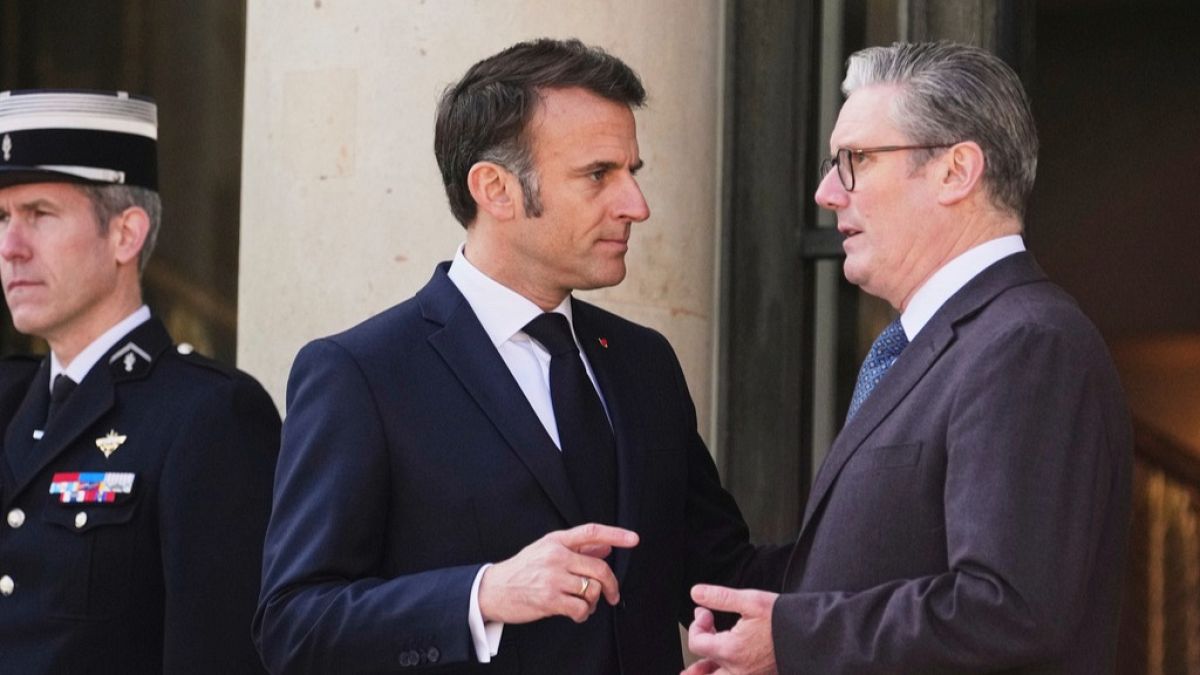

As the world navigates a range of complex political landscapes, recent dialogues reflect ongoing efforts to address significant global challenges. The discussions range from migration issues between France and the UK, ongoing Israeli-Palestinian tensions, to potential peace negotiations involving the United States.
French President Emmanuel Macron’s anticipated visit to the UK is poised to tackle pressing matters like migration and the situation in Ukraine. The meeting, planned as a three-day state visit, balances diplomatic engagement with ceremonial exchanges. Within these discussions, the two nations are expected to unveil strategies to manage the flow of small boats crossing the English Channel. This initiative hints at a possible ‘one in, one out’ system for asylum seekers, aiming for a collaborative approach in addressing migration challenges.
Simultaneously, in the Middle East, the potential for a ceasefire in Gaza appears on the horizon as Israeli Prime Minister Benjamin Netanyahu meets with former US President Donald Trump in Washington. Talks focus on negotiating an end to the ongoing conflict that has afflicted the region since October 2023. While direct peace talks remain elusive, the fraying patience of political leaders stirs hope for an eventual resolution. Indirect negotiations through intermediaries in Qatar signal a tentative step towards reducing hostilities.
In Lebanon, a hopeful note emerges as the US expresses satisfaction with Lebanon’s response to proposals aimed at disarming Hezbollah. This follows an intense period of conflict that intensified last September, leaving significant impacts on the Iran-backed group’s structure. The diplomatic engagement here underscores a cautious optimism about reducing regional tensions through strategic disarmament.
Across the European continent, Ukraine remains a focal point. Ukrainian President Volodymyr Zelenskyy recently discussed further funding for drone production with UK Labour leader Keir Starmer, amid talks of forming a ‘coalition of the willing’. This prospective coalition is set to convene shortly, exemplifying the active measures being sought to address security and sovereignty issues in the region.
As international dialogues continue, the intertwining themes of negotiation and collaboration echo across various spheres. From European border controls, stressed by the reintroduction of Polish controls with Germany and Lithuania, to discussions of environmental practices in the UK, these issues demand cooperative and informed approaches.
In a mutual endeavor to sidestep economic repercussions, the European Union and the United States engage in negotiations to prevent the imposition of tariffs. This avoidance of protectionist measures aims to foster win-win outcomes, indicative of a broader inclination towards sustained international trade harmony.
As these diplomatic efforts unfold, the consistent theme is the shared aspiration for peace, stability, and cooperative progress. Through collective action and mindful negotiation, these pursuits contribute to a more balanced global landscape, advocating for solutions that transcend national borders while respecting sovereignty and international law.
Source: {link}
